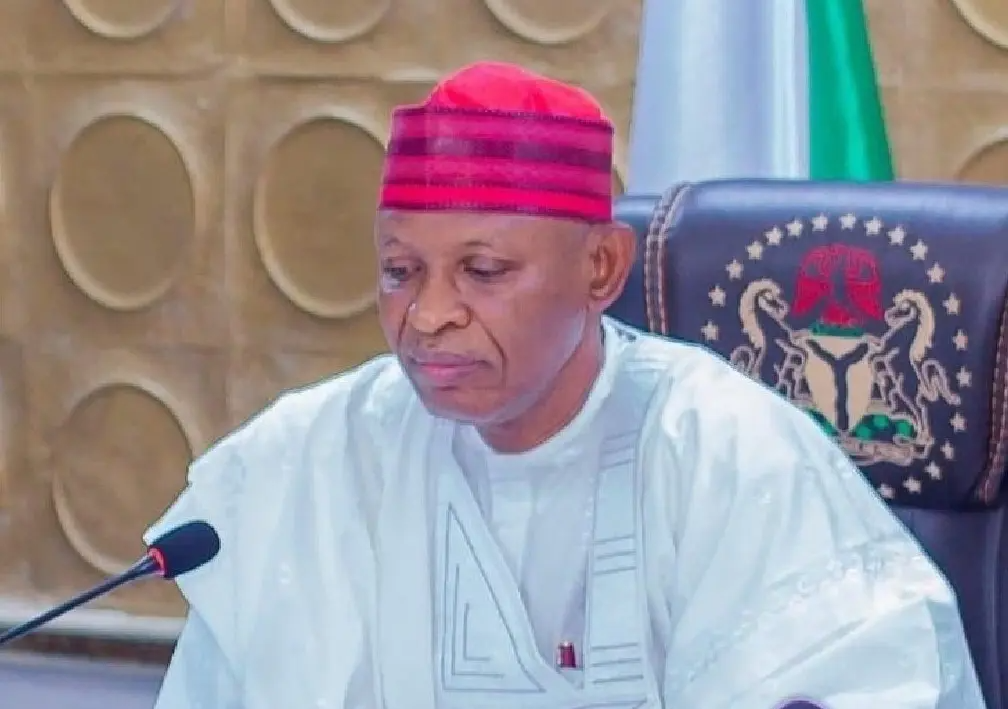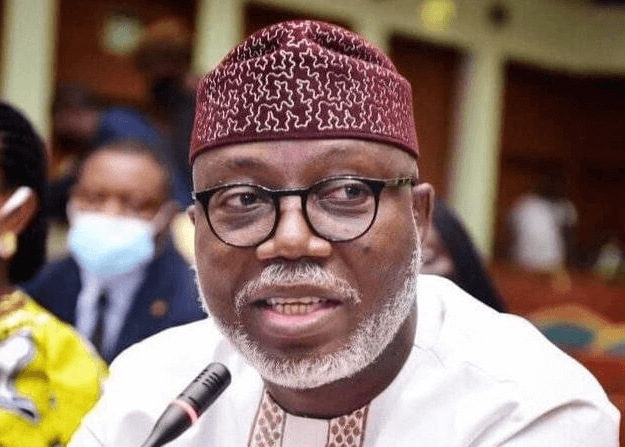 Senate Leader Opeyemi Bamidele[PHOTO CREDIT: X https://x.com/mob_sen_leader/status/1807835878544347392/photo/1]
Senate Leader Opeyemi Bamidele[PHOTO CREDIT: X https://x.com/mob_sen_leader/status/1807835878544347392/photo/1]While Senator Bamidele Opeyemi’s role as Senate Leader has attracted criticism, it is essential to view his actions through the lens of his statutory responsibilities and the broader context of governance. His legislative efforts and constituency projects reflect a commitment to advancing Nigeria’s development and addressing its multifaceted challenges.
Mr Opeyemi Bamidele, the current Senate Leader from Ekiti State, has become a focal point of public discourse, with his career and legislative activities, drawing both praise and criticism. His journey in politics is marked by a series of significant roles and accomplishments, reflecting his deep-seated commitment to public service and governance. Having served as the Commissioner of Information and Strategy in Lagos State and as a Special Adviser on Political Matters, Senator Bamidele’s extensive experience and political acumen have positioned him as a key player in Nigerian politics.
As the Senate Leader, Bamidele’s responsibilities are substantial. He is tasked with leading government bills, managing the legislative schedule, and liaising with committee chairmen and other Senate functionaries. These duties require a high degree of influence and strategic negotiation, roles which he has fulfilled with notable effectiveness. However, these essential functions have led to accusations of manipulative power-broking, suggesting he wields more influence than the Senate President, Godswill Akpabio. A criticism that the Senate Leader has always condemned as he sees the Senate President as his leader and boss. This criticism, however, overlooks the statutory role of the Senate Leader as defined in the Senate Standing Orders, 2023 (as amended), which mandates the Leader to lead the business of the Senate, including government bills.
One of the main points of contention has been Senator Bamidele’s involvement in financial legislation. Critics argue that his actions in amending the 2023 and 2024 appropriation acts and sponsoring various tax-related bills are attempts to impose hardship on Nigerians. However, these criticisms fail to recognise that the Senate Leader is obliged to present and advocate for bills that align with the administration’s policies and priorities. His role involves navigating complex legislative procedures and building consensus across political divides, ensuring that government bills reflect the administration’s agenda.
For instance, the Bank Windfall Tax bill, which has faced significant backlash, is seen by some as an effort to further burden Nigerians. However, tax legislation, while often unpopular, is a necessary component of governance aimed at addressing fiscal challenges and funding public services. The urgency in passing certain bills is sometimes dictated by the pressing needs of governance and economic stability. The quick passage of these bills is often a response to immediate economic needs and long-term fiscal planning.
In addition to financial legislation, Senator Bamidele has been instrumental in advancing a range of other critical bills. Under his leadership, the 10th Senate has presented numerous significant bills, including the Nigeria Maritime Zone Act (Repeal & Re-enactment) Bill, the Coastal and Inland Shipping (Cabotage) Act (Amendment) Bill, and the Environmental Impact Assessment Bill. These bills are designed to strengthen Nigeria’s maritime and environmental regulations, promoting sustainable development and environmental protection.
Other notable bills presented by Senator Bamidele include the Development Planning and Project Continuity Bill, aimed at ensuring the continuity of development projects across political administrations, and the Defence Industries Corporation of Nigeria Act (Repeal & Re-enactment) Bill, which seeks to revitalise Nigeria’s defence manufacturing capabilities. These legislative efforts highlight his commitment to national development and security.
Senator Bamidele has also been proactive in addressing regional development through bills such as the South-West Development Commission (Establishment) Bill and the Federal University Osogbo (Establishment) Bill. These bills are intended to enhance educational opportunities and promote regional development in the South-West. Additionally, his sponsorship of the Bitumen Development Commission Bill underscores his focus on harnessing Nigeria’s natural resources for economic growth.
Nigerians need credible journalism. Help us report it.
PREMIUM TIMES delivers fact-based journalism for Nigerians, by Nigerians — and our community of supporters, the readers who donate, make our work possible. Help us bring you and millions of others in-depth, meticulously researched news and information.
It’s essential to acknowledge that news production incurs expenses, and we take pride in never placing our stories behind a prohibitive paywall.
Will you support our newsroom with a modest donation to help maintain our commitment to free, accessible news?
Furthermore, Senator Bamidele’s legislative initiatives include the Constituency/Special Projects (Budget Provisions) Bill, which seek to ensure that constituency projects are adequately funded and implemented, and the Nigerian Railway Corporation Act (Amendment) Bill, aimed at modernising Nigeria’s railway infrastructure. His commitment to economic reform is also evident in the Dishonoured Cheques (Repeal & Re-enactment) Bill and the Factoring, Assignment and Receivables Financing Bill, which aim to strengthen Nigeria’s financial system and promote economic stability.
In addition to his legislative achievements, Senator Bamidele has initiated numerous constituency projects to improve the lives of his constituents in Ekiti State. These projects include the construction of critical infrastructure such as roads and medical facilities, as well as the provision of essential services like boreholes and market developments. These initiatives demonstrate his dedication to tangible development and improving the quality of life in his constituency.
While Senator Opeyemi Bamidele’s role as Senate Leader has attracted criticism, it is essential to view his actions through the lens of his statutory responsibilities and the broader context of governance. His legislative efforts and constituency projects reflect a commitment to advancing Nigeria’s development and addressing its multifaceted challenges. The portrayal of him as a power broker overlooks the complexities of his role and the necessity of his actions within the framework of Nigerian democracy. His contributions to legislation and development projects underscore his dedication to public service and the betterment of Nigeria.
Gimba Mansir writes from Kofar Marusa, Katsina State.
Support PREMIUM TIMES' journalism of integrity and credibility
At Premium Times, we firmly believe in the importance of high-quality journalism. Recognizing that not everyone can afford costly news subscriptions, we are dedicated to delivering meticulously researched, fact-checked news that remains freely accessible to all.
Whether you turn to Premium Times for daily updates, in-depth investigations into pressing national issues, or entertaining trending stories, we value your readership.
It’s essential to acknowledge that news production incurs expenses, and we take pride in never placing our stories behind a prohibitive paywall.
Would you consider supporting us with a modest contribution on a monthly basis to help maintain our commitment to free, accessible news?
TEXT AD: Call Willie - +2348098788999


















 English (US) ·
English (US) ·